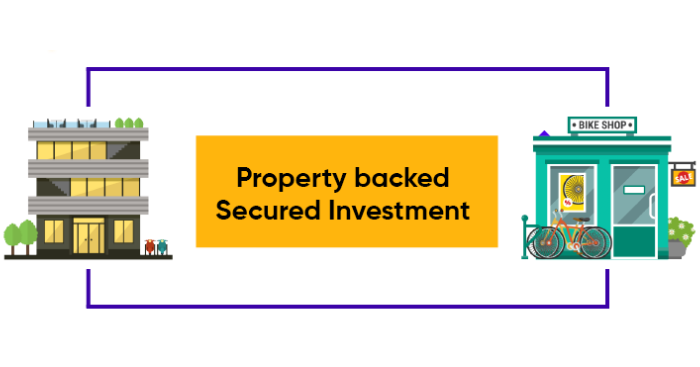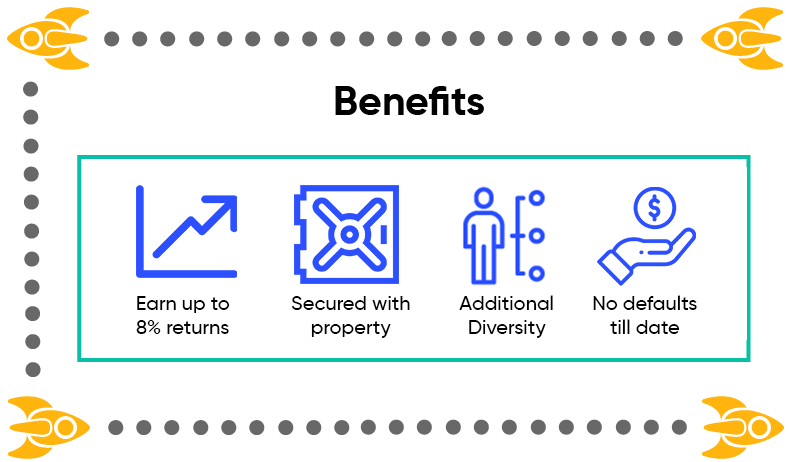Debt crowdfunding, commonly known as peer-to-peer (P2P) lending is an investment concept where individuals & institutions together invest in loans to SMEs and earn returns in the form of interests. Considerably disruptive, the industry adopts a business model targeting the underserved SMEs by employing technology to directly link investors with them. Funding Societies is the largest such platform in Southeast Asia, having financed over S$1.3B worth of funds via their platform.
About Funding Societies
The platform is licensed and has operations in Singapore, Indonesia and Malaysia. Backed by Sequoia India and Softbank Ventures Asia amongst many others, the platform has grown at a rapid pace since they launched in 2015 in Singapore. The main risk in this investment is default risk of the loans. A few things to note when investing with Funding Societies:
- Low barrier to entry: Investors can invest as low as $20 per loan
- Short tenor: Investment tenors are quite short ranging from 1 to 12 months
- Returns on Investment: Interest rates usually range between 3% to 5% per annum for a Guaranteed Investment product, 6% to 8% per annum for a Property-backed investment and 8% to 18% per annum for Invoice financing and Working capital related investments
- Default Rate: The Singapore platform default rate is 1.89% while for Property Backed Secured Investment its 0% (no defaults till date)
To subscribe and start investing, just fill a 5 minute form here
Investing in these uncertain times
In light of the current economic uncertainties, Funding Societies has taken the approach to offer more investment notes for products that are more secure and have collateral backing it. For the purposes of this article, we will be looking at the Property-backed Secured Investment (PBSI) product.
About Property-backed Secured Investment (PBSI)
- Investments backed by Singapore properties
- Interest rates usually between 6% to 8% per annum
- No defaults till date
PBSI is a crowdfunding investment made by investors in the form of a loan to a SME that is backed by a local property as collateral on a first lien basis. These pledged properties can be residential, commercial or industrial. Such properties may be owned by the companies and/or directors of the companies. What it means is that if the company defaults, the platform can liquidate the property to recover the principal and interest and pay back to the investors. To ensure that property price fluctuations do not impact the liquidation process, Funding Societies usually does not give loans of more than 70% of the property value and also takes into account forced sale value. Click here for more information on PBSI product.
Given that the loans are backed by collateral, PBSI is perceived to have a lower risk than other products on the platform. The rate of interest usually ranges between 6% – 8% per annum on a simple interest basis. This product portfolio has done very well so far with no defaults in more than 1.5 years since launch. While having a property as collateral does not mitigate default risk, it does provide an alternative helpline when seeking fund recovery should there be a default. At this point, it is important to note that past performance of the rates of return does not indicate future rates of return.
To reiterate, the reason behind the lower interest rate is due to PBSIs being generally less risky, given that these notes are backed by Singapore based properties. As the properties can be disposed off or auctioned by Funding Societies in the event of a default, the likelihood of recovering the principal and interest is considerably higher. More information on the interest rates for PBSIs can be found here.
While the returns are typically comparatively lower than unsecured products like Business Term Loans or Invoice Financing on Funding Societies, it can possibly be higher than some of the other investment vehicles in Singapore such as fixed deposits, certain bonds, and other fixed repayment investments. Investors will need to do their due diligence and access their risk appetite when studying various products.
To subscribe and start investing just fill a 5 minute form here
Importance of investment diversification
Just as how it is important to diversify your traditional investment portfolio across geographical areas, business types and investment types, the same is true for Debt Crowdfunding.
PBSIs can be an option to consider when opting for product diversification. By investing into both secured and unsecured products, the overall portfolio can be more balanced out to better weather storms.
Conclusion
Technological advancements have made multiple means of investment available to retail investors. While unimaginable a decade ago, retail investors today now have a large pool of investment opportunities to pick and choose from. When taking calculated risks, investors will need to fully understand the product that they are interested in. Beyond that, reading up and keeping up with trends is also crucial.
If you have done your own due diligence and decided to invest with Funding Societies, they currently have a promotion for new investors. Sign up with promo code MD20 and make a total investment of S$200 by 30th April to get a S$20 cashback.
Terms and Conditions apply
Investors must sign up with the aforementioned promo code and make a total investment of at least S$200 by 30th April 2020 to be eligible for the $20 cashback. Cashback will be credited into the eligible investors’ accounts by the end of May 2020. Funding Societies’ investor T&Cs apply.
Disclaimers:
This article is contributed by Funding Societies.
It should not be construed that Moneydigest is endorsing this article or any of the products and services provided by Funding Societies.
The content and materials made available are for informational purposes only and should not be relied on without obtaining the necessary independent financial or other advice in connection therewith before making an investment or other decision as may be appropriate.
All information in this article is accurate as of 2nd April 2020


